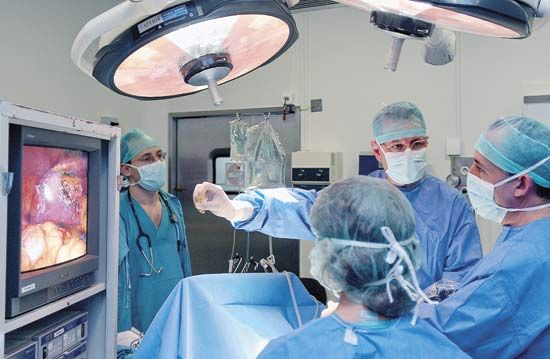Article
Laparoscopic Colon Surgery Preserves Elders' Independence
Author(s):
Although 3-year survival and cancer recurrence rates are comparable for patients who have laparoscopic or open surgery at any stage of colon cancer, older patients who undergo a laparoscopic procedure have a significantly less likelihood of being admitted to a nursing home compared to those who have open surgical resection.

Although 3-year survival and cancer recurrence rates are comparable for patients who have laparoscopic or open surgery at any stage of colon cancer, older patients who undergo a laparoscopic procedure have a significantly less likelihood of being admitted to a nursing home compared to those who have open surgical resection, according to a scientific poster presented at the 2013 Clinical Congress of the American College of Surgeons.
Using the 2009-2010 US Nationwide Inpatient Sample (NIS) database, Dalhousie University surgeons reviewed data on 9,416 colon cancer resection patients older than 70. Of those patients, 5,704 had open surgical resection and 3,712 had laparoscopic procedures. According to the researchers, only 12.5% of the patients who had laparoscopic procedures were admitted to nursing homes, compared to 20% of those who had open resections.
Some other patient subgroups did have an elevated risk for nursing home admission. For example, patients who were aged 75 to 80 years old, 80 to 85 years old, and older than 85 were respectively 2, 4, and 8 times more likely to enter nursing homes. Major comorbidities such as diabetes, hypertension, or heart disease also increased the likelihood of nursing home admission. Locally advanced colon cancer was also a risk factor, which was probably due to the increasing complexity of surgical intervention for the condition.
The authors concluded that patients in their early 70s who lack advanced disease or significant comorbidities may find laparoscopic colon cancer resection to be an option that prolongs survival while preserving quality of life.





